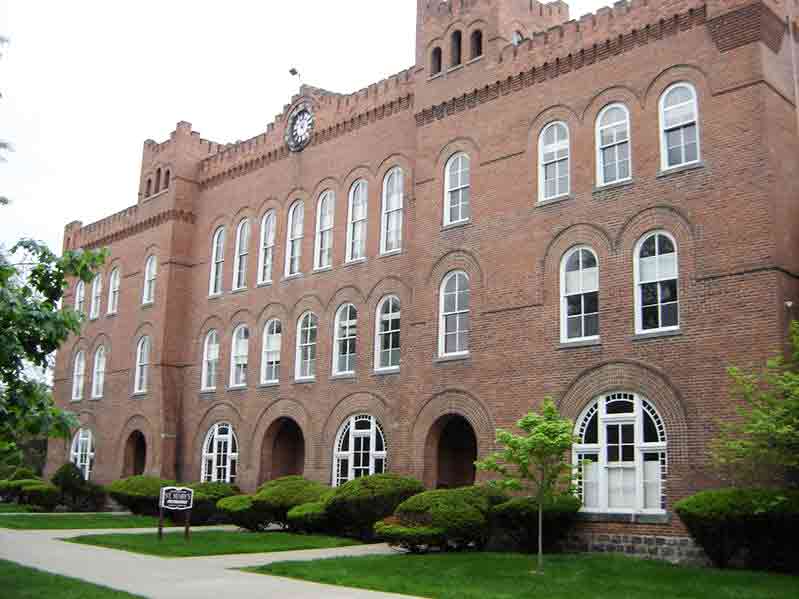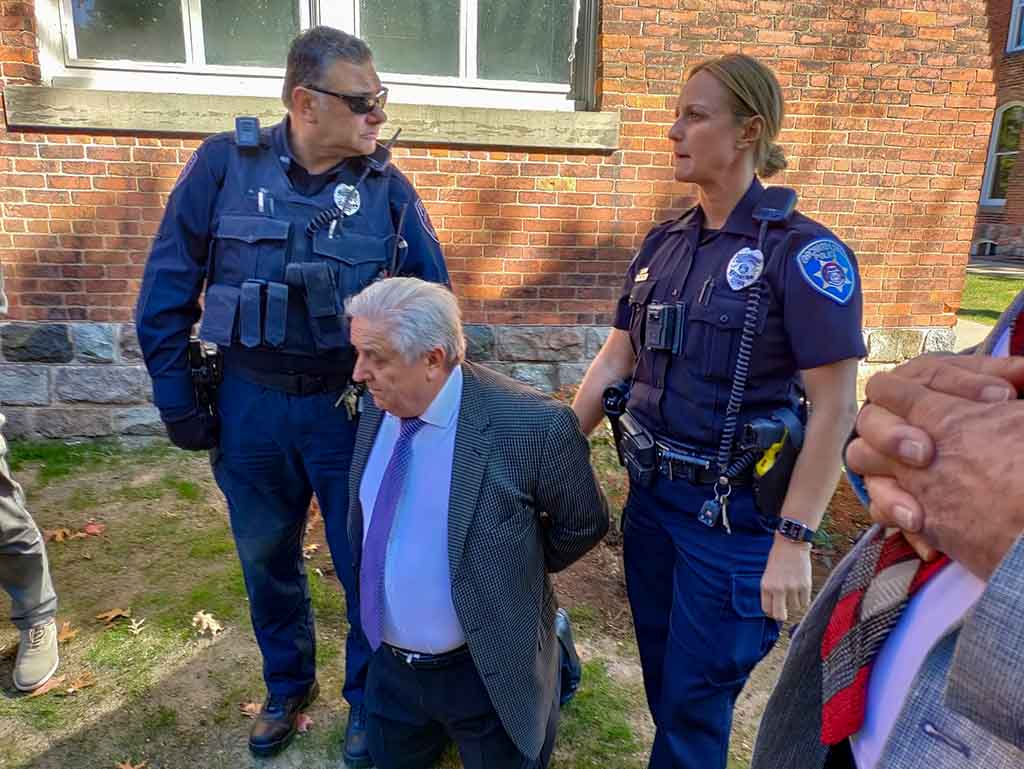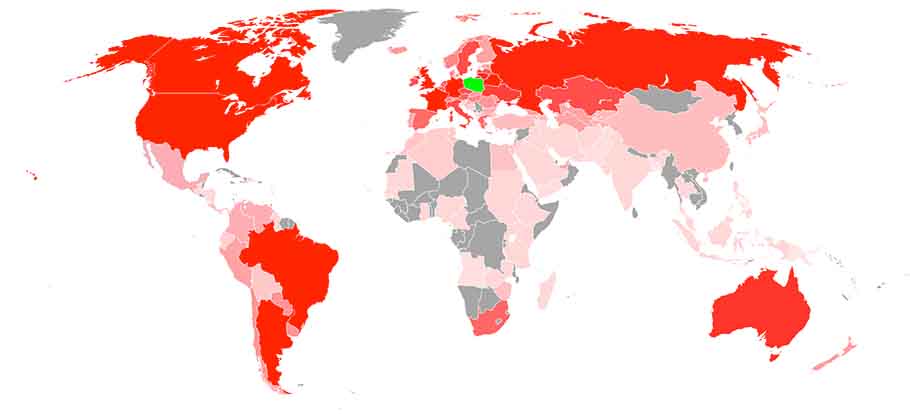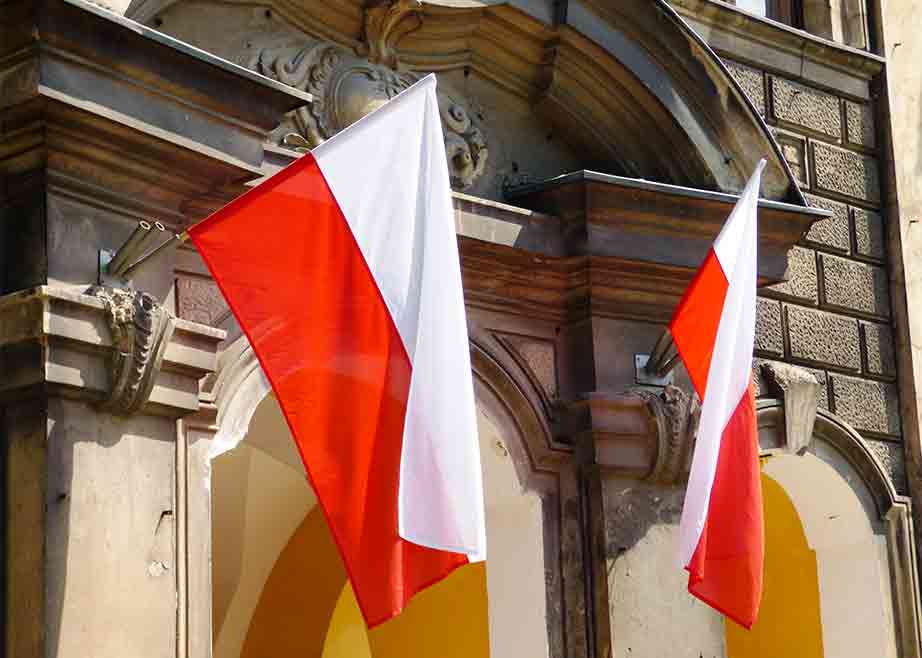Waldemar Biniecki: You have been appointed the director of the Polish Institute of Culture & Research in the Orchard Lake Schools (OLS) center. Could you introduce yourself to the Polish diaspora? Tell us about your academic work and private life.
Dr. John Radziłowski: Thank you. I am a fourth generation Polish American. My great grandparents came from several parts of the Polish lands, including Jasło, Poznań, the Kaszubian region, and Mazovia. (Two others came from Switzerland.) My Radziłowski ancestors held the Sas coat-of-arms and are mentioned in sources going back the reign of Zygmunt Stary. My late father was a well-known scholar and community leader of Polonia. I accrue no personal merit from this, but I am blessed to stand on the shoulders of such giants. Tradition is the living faith of the dead, and it is our honor and duty to carry our traditions forward and represent our ancestors with honor.
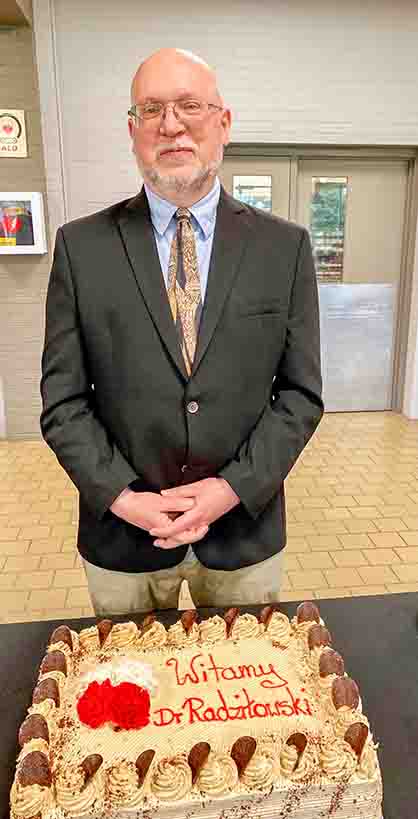
Professor John Radziłowski (Source: Facebook – Polish Institute of Culture and Research)
I received my doctorate from Arizona State University in 1999 in the fields of U.S. history and Russia/East-Central Europe. I also had training in Public History, which concerns publishing and editing, as well as the management of historical and cultural resources. Prior to entering teaching as a profession in 2004, I held a variety of other jobs. I was a journalist, a free-lance writer and researcher, and worked in a social service agency with the unemployed. From 2001 to 2005, I worked for Prof. Zbigniew Bochniarz at the Center for Nations in Transition at the University of Minnesota where I helped to manage U.S. government educational assistance programs in Ukraine, as well as Poland and other east-central European countries. During that time, I was also president of the Polish American Cultural Institute of Minnesota, which was a very active cultural and community group. In 2007 I joined the faculty of the University of Alaska Southeast where I have taught all manner of history courses, as well as art history and geography. I am currently a full professor, though I am on leave from the university. I am also an adjunct professor at the Pope St. John Paul II Center at the University of St. Thomas in Houston.
As an author and researcher, I have very wide-ranging interests thanks to my unusual background and many excellent mentors and teachers. I am especially interested in the history of American Polonia. I have written several books and articles in that area with a special emphasis on the role of family networks and the Catholic faith in shaping Polonia. I have also written quite a bit on the history of Poland, especially the 20th century and World War II. Naturally, I am also interested in the history of the U.S.A. and Europe, more generally. So I have written on such topics as Polish farmers in the Great Plains, crime and gangs in Chicago Polonia, Poland’s historic relationship with Spain, the moral and legal problems of art restitution after World War II, the American air drop to fighting Warsaw in September 1944, and the battlefield strategies used by commanders of the famous Winged Hussars, to name a few.
WB: I was in Poland three weeks ago and I was asked about Orchard Lake Schools. What is this institution and what are its components? Can you explain it to us?
JR: The Orchard Lake Schools (OLS) were founded as the Polish Seminary of Ss. Cyril and Methodius in 1885 in Detroit by Fr. Józef Dąbrowski, a truly outstanding figure in the history of Polonia (and one who is too little known in Poland). It initially trained priests to serve the rapidly growing Polish population in America. In 1909, the school moved to the present site at Orchard Lake, outside of Detroit. From the seminary OLS also developed a high school and a college. Unfortunately, in 2003 the regents of OLS closed St. Mary’s College and this spring also closed the Seminary. Currently OLS has St. Mary’s Prep (High School), the Polish Institute of Culture and Research, and the Polish Liturgical Center (which publishes the missalette Pan z Wami). Also on our campus is the Archdiocesan Shrine Chapel of Pope St. John Paul II. The Polish Institute of Culture and Research was founded as “the Polish Mission” after the closing of the college to consolidate several pieces of OLS related to Polish culture and history, including archives, several small museum collections, and an extensive art collection. It was also meant to conduct education and outreach to Polonia. The Institute was renamed at the end of 2021 as the Polish Institute of Culture and Research. I took over as director on June 1, 2022.
This is a simple version of an extremely complicated story, some parts of which, I admit, I do not know all the details of. There is much more that could be said about this but, in the interests of space, I will leave that for another time. I want to emphasize that I am the director of only a part of OLS and do not have any power over the other parts.
The brief description of our institute is: “The Polish Institute of Culture and Research at Orchard Lake is a not-for-profit organization that serves the Polish American community, regionally and nationally, as a center for Polish and Polish American culture and research. As part of the Orchard Lake Schools and rooted in the teaching and faith of the Catholic Church, the Institute is part of an ancient, living tradition of Polish and Polish American culture and serves as center for research and cultural activity for people from throughout its region, across North America, and around the world.”
WB: What treasures of Polish Heritage does OLS hide?
J.R: First, we do not “hide” any treasures. Our major problem has been creating appropriate places to securely display and appreciate the treasures we have. This is a problem we are working hard to overcome and hope to see some results soon. We have completed the first phase of our art gallery renovation and, soon, we will start the second phase. It was also a fact that, in the past, OLS’ leaders did not have a clear idea of the purpose and needs of the collections we have, so there was a lack of proper care and staffing. This was a problem for several decades. If you know about the Polish Museum in Chicago, it faced a similar situation to what we face here for many years from the 1970s to the 1990s but has now turned around quite successfully.
To answer your question more directly we have an extremely large collection of Polish art, mostly from the 19th and 20th centuries, including artists such as Malczewski and Stryjeńska. It is perhaps the largest Polish art collection outside of Europe. We have letters and documents from Polish kings dating to the 17th and 18th centuries, as well as rare books and coins. Naturally, we have many documents and collections relating to the history of American Polonia. This includes documents, photos, and artifacts collected by Polish veterans of World War II (AK, II Corps, Polish Air Force), as well as survivors of German and Soviet terror. An important focus of collection relates to the history of Polish parishes and clergy in the USA, as well as the Catholic faith, which is due to the special history of our institution.
WB: Will you save OLS? What is your strategic vision?
JR: Only the Good Lord knows the outcome of our endeavors. It is hubris to pretend we know what will or will not happen. If we learned nothing from the past couple of years, we should have learned that trying to predict the future is a fool’s game. Also, I am not in charge of the whole of OLS, so I can only address my piece of ground.
If you are asking “can the Polish Institute of Culture and Research, be saved?” then the answer is emphatically yes, with the help of God and good people. I mentioned the Polish Museum of America in Chicago which has dramatically turned around and is now a place of pride and a real gem for all Polonia. If the PMA can do it, so can we. What was done in Chicago is a source of inspiration for me. We are also very fortunate to have the generous help of the Edward and Josephine Wikera Foundation which provides basic support for our staff and annual operations. In the world of non-profits, this is a big advantage because it gives us the opportunity to focus on our collections and programs without worrying every minute about fundraising to save our own jobs or keep the lights on.
The Institute should be a place that both preserves the history and culture of Poland and Polonia and sustains and fosters it for future generations. Ultimately, I would like our Institute to be part of a network of museums and research collections for Polish and Polonia history and culture across North America that will work in concert with partners in Europe, especially — but not exclusively — in Poland. We should be able to share collections and resources and cooperate in preserving and promoting our culture, especially using digital tools.
To achieve this, our Institute has to overcome several large problems. I mentioned previously that we need to create appropriate places for research and for display of our collections, which includes making items available virtually. This will be one big challenge.
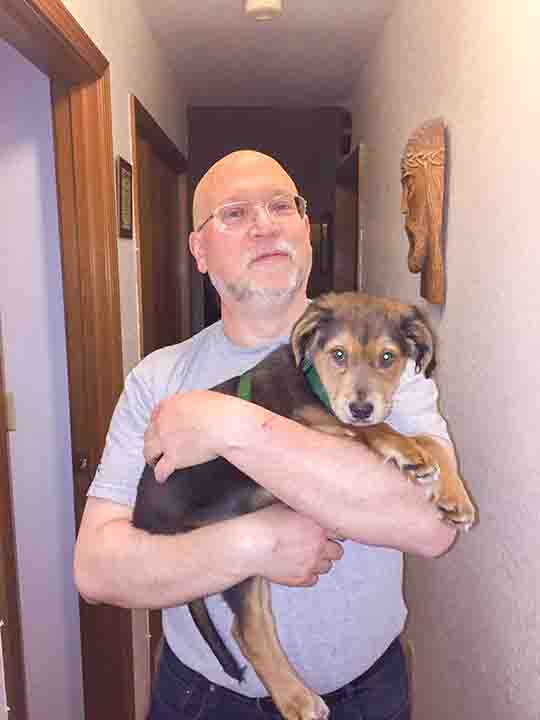
Source: Facebook – John Radziłowski
A second problem for the Institute is no less serious, that is, to correct the mistakes made in the past. Some of these are technical issues relating to professional management and documentation of art or archival resources. In the past, some very good work was done by a few individuals that was later frustrated by people who did not have the appropriate skills or knowledge to do their jobs. For example, after 2009, some badly needed changes were made which were later partly foiled by people who subsequently took over. We have to make sure this pattern does not repeat itself by providing stability over several years.
More significantly, in the past, OLS and the Polish Mission caused much harm to itself by the way it treated some of its employees and how it related to the Polish community more generally. Decisions were made in a seemingly arbitrary fashion without transparency or clear explanation. This resulted in a breach of trust with Polonia. So, we are committed to operating the Institute in an open, transparent manner, providing clear explanations for our decisions. So, we are trying to build a different culture based on professionalism, transparency, and service to Polonia.
WB: What role in this vision will be played by bilingualism and the connection of this center with Poland and the Polish media?
JR: Both of these aspects will be very important. It is my goal to have all of our information and catalogues available in both languages. We are providing programing and education for audiences in Polish and English. In the short term, we hope to bring back Polish language classes in person or online, or perhaps both. Such classes were taught at the prep and college level for many years, but ended some time ago. Currently we also host the Fr. Józef Dąbrowski Polish school here on campus.
One of our major tasks is to provide education and information about Poland and Polonia. Here in the USA, much of our potential audience speaks English. It is extremely important to have high-quality programs and material in English that is both accurate and interesting for an American-born audience, including people without Polish roots.
Of course, there is still a significant population of people who are bilingual and some who speak only Polish. Since 2004, immigration from Poland has been very small, so in many cases, we are dealing with American born children who are approaching adulthood or are already young adults. In this case it is not sufficient to simply provide language classes (and many of this cohort are already proficient) but to consider ways they can utilize Polish in future careers in fields such as business, engineering, medicine, or science, which have their own specialized vocabulary. In other words, to prepare young people for advanced study or careers where they can work cooperatively with colleagues in Poland or even find employment in Poland.
Finally, we warmly welcome the assistance of the Polish government, as well as Polish foundations and businesses. You have written quite eloquently on the need for Poland to provide real assistance to Polonia. I am in complete agreement. There has been a lack of consistency and vision in this area for a long time and assistance is often held hostage to changing priorities and turnover of personnel in Poland, as well as in Polish consular offices here. Polonia cannot be merely a means to an end, nor can cooperation be limited to the most recent cohorts of Polish immigrants. At the same time, Polonia must be in a position to accept and effectively use help from Poland, which has not always been the case.
One of my immediate tasks is to prepare the Polish Institute of Culture and Research to effectively employ specialists from Poland who can assist with our archival and museum collections (which we sorely need). This means ensuring consistent standards of professional management and having appropriate facilities for our work among other tasks. Polonia organizations need to make a commitment to get their own houses in order before they can ask Polish partners to provide serious help. This has to be a “two-way street,” to use the American expression, where both sides have find ways to create effective, long-term partnerships that outlast the tenure whatever individuals are holding a particular office.
WB: Thank you so much for your interview and good luck in your new position.
JR: Thank you.





